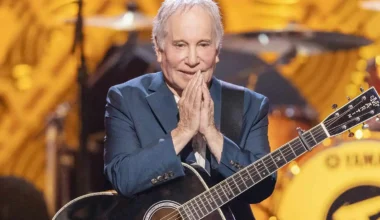In any field, let alone music, it takes a lot of guts to stand up and be counted. For the bravest of creators, those who combine natural talent with plenty of confidence and a hint of arrogance, breaking with tradition and creating something truly unique with sound has always been their speciality. While The Beatles’ John Lennon is a prime example of this, other greats include Jimi Hendrix, Kurt Cobain, Ritchie Blackmore.
It took a lot to break through the crowd and carve out a distinctive hideout in the days of the guitar hero, but Deep Purple’s wizard accomplished just that. Using the Fender Stratocaster as a weapon, as the best players of his generation did as well, he made a lot of noise that propelled him to the top of the game. His intense playing, infectious riff sense, dive bombing, string-tapping, and loud soloing were some of his other tendencies. He quickly sat down at the table with Jeff Beck, Jimmy Page, and Eric Clapton—three of London’s other top axemen.
His fearless demeanour has always served to enhance this incredibly inventive aural essence. Ritchie Blackmore, like all truly great musicians, is aware of his preferences. This enhanced all of his most important artistic decisions because it allowed him to see a clear path and stay unfazed.
While Blackmore has shown his willingness to speak his mind on many an occasion—like when he viciously dismantled Sting and The Police—he has also unrestrainedly assessed the work of his most well-known contemporaries from swinging sixties London. The Rolling Stones are one band that hasn’t escaped his wrath. He detests them greatly for what he perceives to be their extreme lack of originality, which is unacceptable to him.
When the “Black Night” icon spoke with Trouser Press in 1978, it all became clear. This was the time he had left Deep Purple to form his renowned supergroup, Rainbow, after enjoying great commercial and critical success. He started his description of The Rolling Stones by thinking back to how he got into rock music.
He was first shown the way by early rock and roll icons like Tommy Steele, Elvis Presley, and Duane Eddy. Later, guitarists Hank Marvin, Django Reinhardt, Wes Montgomery, James Burton, Buddy Holly, and Les Paul showed him just how influential the instrument could be, much like the other progressive stars of his generation.
But in a demonstration of that distinct personality, Ritchie Blackmore insisted that starting at age 17. He “didn’t have any idols” and was “mostly practising” his own look. “After that, I was on my own,” he clarified. My inspiration was primarily drawn from violinists rather than guitarists. Really, I don’t listen to a lot of rock ‘n’ roll.
Hendrix and Cream were great. However, he got no support at all from vocal groups like The Beatles and The Hollies. He finally reached The Rolling Stones’ “idiots.” Declaring how much he detested Mick Jagger and the band, he said, “The Stones? They seemed foolish to me. Just a tiny nick from a Chuck Berry riff did it. Chuck Berry fared well. I may speak out at times, but I don’t have time for the Stones. Their record demonstrates excellent and consistent rhythms, which is why they earn such respect. Although I don’t like them, I do respect them.








